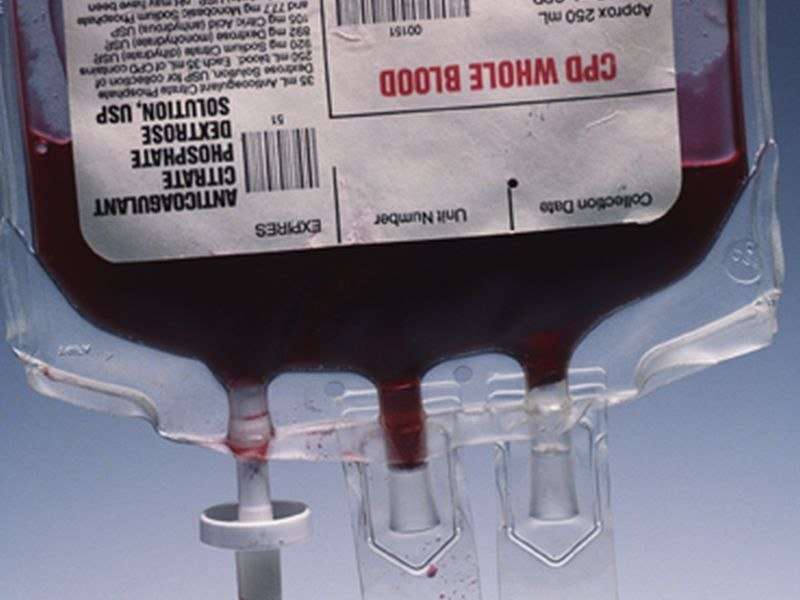RBC, plasma transfusions drop from 2011 to 2014

(HealthDay)—From 2011 to 2014, there were decreases in red blood cell (RBC) and plasma transfusions among hospitalized patients, according to a research letter published in the Feb. 27 issue of the Journal of the American Medical Association.
Ruchika Goel, M.D., M.P.H., from the Weill Cornell Medical College in New York City, and colleagues examined temporal trends in RBC, plasma, and platelet transfusions from 1993 to 2014. The analysis focused on trends from 2011 to 2014, and estimated adjusted risk ratios (aRRs), while accounting for patient- and hospital-level characteristics and comparing the risk of transfusion in 2011 versus 2014.
The researchers observed an increase in the proportion of patients transfused with RBC, platelets, and plasma from 1993 to 2011. From 2011 to 2014, there were decreases in RBC transfusions (from 6.8 to 5.7 percent; aRR, 0.83; 95 percent confidence interval [CI], 0.78 to 0.88) and plasma transfusions (from 1.0 to 0.87 percent; aRR, 0.87; 95 percent CI, 0.80 to 0.95). Platelet transfusions remained stable during this time (aRR, 0.99; 95 percent CI, 0.89 to 1.10).
"The observed decreases in RBC and plasma transfusions from 2011 to 2014 may reflect evidence demonstrating the safety of restricting RBC transfusions, patient blood management programs, conservation initiatives (e.g., cell salvage, pharmacotherapy, improved surgical techniques), advocacy from medical organizations, and publication of transfusion guidelines," the authors write.
Two authors disclosed financial ties to the pharmaceutical industry.
More information: Abstract/Full Text (subscription or payment may be required)
Copyright © 2018 HealthDay. All rights reserved.

















